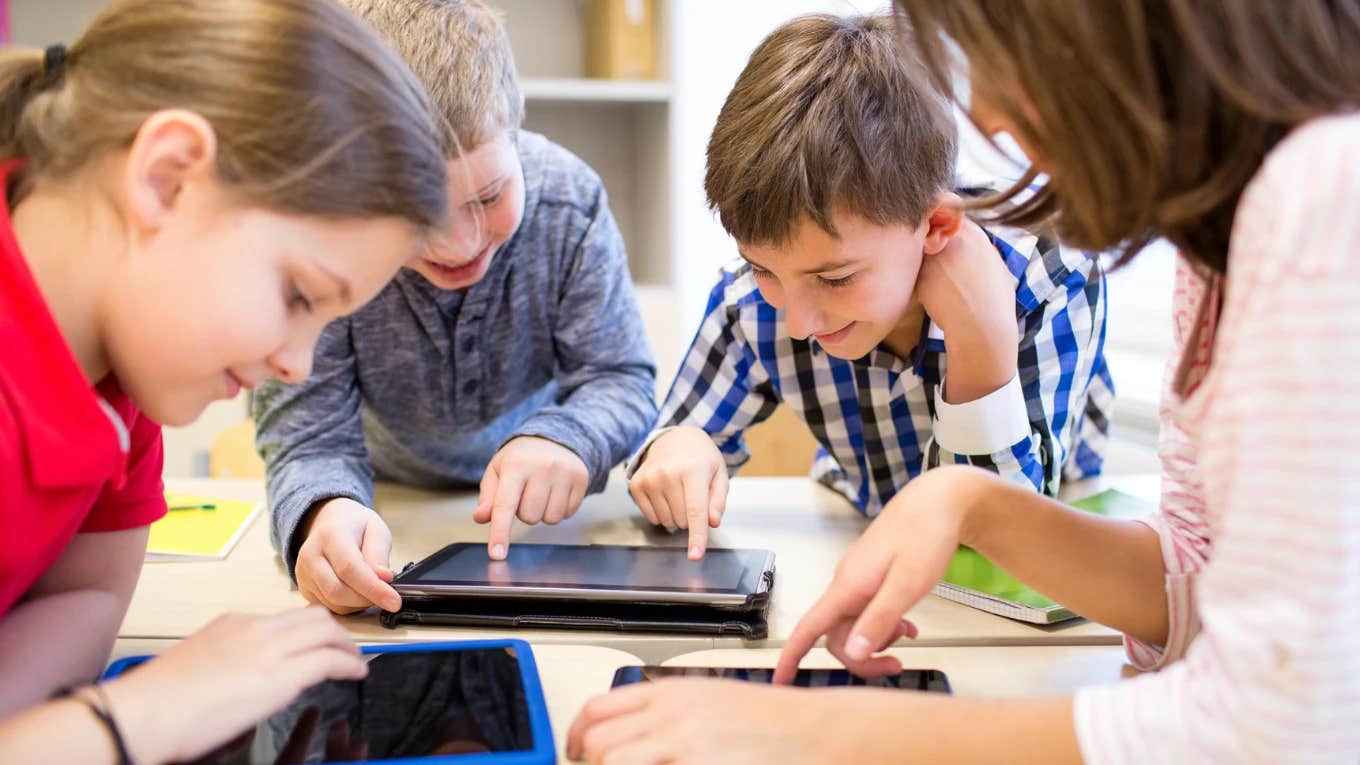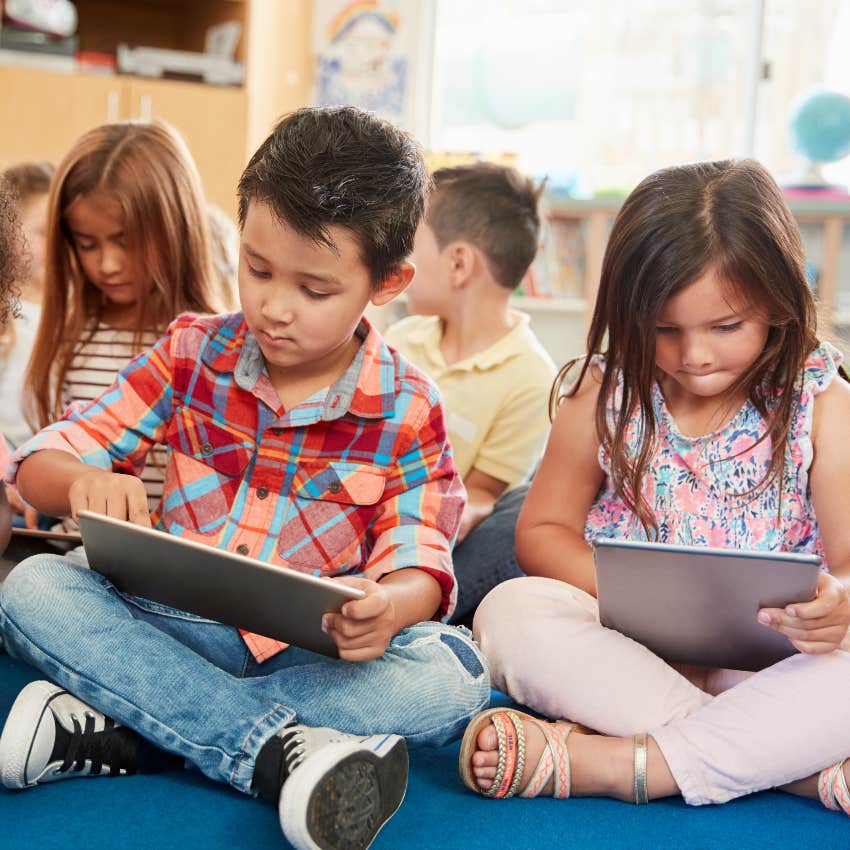Therapist Explains How Chromebooks & IPads In Elementary School Are Causing A Huge Issue For Young Kids
There's an abundance of research that shows technology is harmful to both kids' mental health and their ability to learn.
 Ground Picture / Shutterstock.com
Ground Picture / Shutterstock.com The debate over how technology and screens are impacting kids has raged for years now. One therapist and mom on TikTok shared her concern that the ubiquity of electronic devices in schools is a bridge too far.
She explained that technology in schools harms kids' brains and might be impairing their ability to learn.
"What is the thing that has become so societally normalized but makes you just want to scream into the void," therapist and mom Andrea Brambila asked in a recent TikTok. "For me, it is technology in school."
 Photo: Monkey Business Images / Shutterstock
Photo: Monkey Business Images / Shutterstock
Like tons of kids, Brambila's son was issued a Chromebook and a tablet to do virtual learning in 2020 when schools closed due to the pandemic. At the time, Brambila said she was grateful that these resources existed.
However, she questioned why schools have continued using technology and virtual learning despite evidence that it is harmful to children's developing brains.
"I was not prepared for the fact that these Chromebooks would never leave," she said. "[There is] so much research that shows that kids … do not learn through a screen anywhere close to the same way that they do with an in-person teacher."
Brambila then referenced research that has shown that portable devices, "like iPads and Chromebooks," impact kids' brain development in ways that can show up as symptoms that look like the behavioral and cognitive challenges of ADHD and autism. These symptoms include inattention, difficulty completing tasks, hyperactivity, and impulsivity.
"I'm not saying that screens cause autism spectrum disorder or cause ADHD," she clarified. "But what I am saying is that kids who spend too much time in front of electronics have symptoms and behaviors that often look like ADHD, even if they don't meet the clinical diagnostic requirements."
Brambila also criticized the way technology in schools is often couched as an equalizer that makes education more equitable.
That's only true, of course, if your child goes to a school that can afford the technology or one where tech companies are willing to subsidize devices for students who can't.
Brambila claimed that this all misses the point entirely. "[W]hen I think about what could actually be improving equity," she said, "I'm thinking about things like lower teacher-to-student ratios." Instead, we are subsidizing technology that Brambila said can also open up kids to harmful content.
As a therapist, she often hears from parents who've banned their kids from using things like the messaging app Discord. "But their school doesn't block it," Brambila said, meaning their child can sit on Discord all day at school, scrolling an app that has become a wildly popular way to disseminate everything from pornography to violent political extremism.
"I feel like we've just really done an injustice to our kids expecting for them to learn in this manner," Brambila said. The absurdity becomes even harder to swallow given that all this tech probably isn't even helping kids learn in the first place.
There is growing data showing that screen time and technology not only damage kids' mental health but also impair their ability to learn.
What seems to always get omitted in the discourse about kids and screen time is a fairly obvious question: If we know conclusively that screen time is linked to mental health problems in kids, why on earth are we not making the logical connection that requiring them to sit on devices all day long at school and while doing their homework is bad for them too?
 Photo: Ground Picture / Shutterstock
Photo: Ground Picture / Shutterstock
It's like believing that driving without a seatbelt is only dangerous if you're joy-riding, but not when you're driving to work, school or to run errands. It's absurd.
And there is an overwhelming amount of frankly disturbing data backing up people like Brambila who think technology in schools is a terrible idea — one that actually impairs kids' ability to learn. Studies have long shown screen time to be linked to decreased cognitive ability and impaired language development.
This is because, as a study of 33 different MRI and neuroimaging studies revealed, screen time has been shown to reduce connectivity between the parts of the brain that manage language, cognition, and inhibitory controls on behavior.
By contrast, studies have also long shown that activities like reading actual books, playing a musical instrument, and even juggling — that is, physical and mental activities that do not involve technology — actually enhance these so-called "white matter" brain connections.
The research may not be conclusive just yet, but the evidence is overwhelming that technology — whether an iPhone scrolling on TikTok or a tablet being stared at all day while doing math at school — is messing up our kids' mental health, behavior, ability to learn, and the very neurological connections that make their brains work in the first place.
Why on Earth are we not only allowing, but requiring this in schools? That is the question people, including our children, will likely be asking a few decades in the future. We owe it to them to ask it of ourselves right now, while there's still time to do something about it.
John Sundholm is a news and entertainment writer who covers pop culture, social justice and human interest topics.

